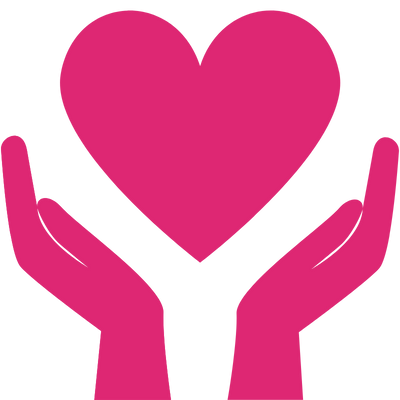In addition, 80% of children involved with the Engage intervention reported a reduction in abuse. And 91% said that their wellbeing had improved.
We saw great success and drove substantial change. But we didn’t reach all families. And we didn’t reach all of the public sector bodies that we hoped to. In particular, Beacons didn’t reach health organisations.
Four out of five domestic abuse victims never go to the police. And, one child in every classroom will have been living with domestic abuse since they were born. We know that GP surgeries, health visitor and maternity check-ups, nurseries, classrooms and A&E are often the places where people first speak out about an issue in the family. This presents a huge opportunity to spot and take action about safety and wellbeing concerns.
Read about our work on health and domestic abuse
But Beacons also created substantial change. The evaluation shows that:
- Idvas helped people at medium-risk of harm get – and stay – safe
- ‘Engage’ showed that sensitive work with couples who want to stay together can increase safety levels
- Children and young people received specific and age-appropriate interventions
- Adults with complex needs have been supported to improve long-term safety and wellbeing
- Those leaving other services have been helped to move on from the impact of trauma and abuse
Read the Beacons evaluation report
Following the Beacons interventions, most survivors reported feeling confident and optimistic about their own and their children’s prospects for the future. Mothers told us they felt more confident with parenting and better understood the impact of domestic abuse on their children – though there were still some concerns about child contact.
Online support
‘Beacons’ was designed with some online support elements in place. As the project developed these were adapted following feedback from survivors and in response to the Covid-19 pandemic.
It’s clear from this, and our other, work that service provision works best when it is flexible to meeting the needs of the individual. Some survivors prefer in-person provision. But online support is also clearly an important part of effective service provision.
Informing the domestic abuse response
It’s long been clear that we all – public, private and voluntary organisations and agencies – need to work together to end domestic abuse, for everyone and for good.
Client involvement should be first and foremost in designing services and interventions. Good quality responses to domestic abuse use a robust understanding of risk and work from a position of understanding trauma and building on a person’s strengths.
Effective service providers should understand that the nature of domestic abuse is highly gendered. And that this creates behaviours by the person using abuse, and impacts on adult and child victims.
Practitioners must be given the support they need to be flexible, reliable and accessible and to challenge and change methods that don’t work in the best interest of clients.
We all live as part of a family, whatever form that takes. And a ‘whole family’ approach is essential. Current structures and funding models need to be changed. Frontline practitioners need more space and sustainable funding to develop and evolve their work. Survivor voices need to be heard from initial service design through to quality assurance and monitoring.
These are big changes. We recognise that budgets are tight and caseloads are high. But, the results from the evaluation of our Beacons sites, alongside our other research, speak for themselves.





